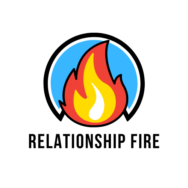It’s not always crystal clear what someone means when they say, “Who hurt you?” So, let’s fix that.
What do people mean when they say who hurt you?
When people say “Who hurt you?” they mean that they believe what you just said or did comes from a place of pain and hurt. They also mean that what you said is inaccurate and invalid. Both men and women ask “Who hurt you?” as a default response to messages that they do not support.
In this article, you’ll learn everything you need to know about what people mean when they say, “Who hurt you?”
6 Major Meanings of “Who Hurt You?”

There are at least 6 different things people mean when they say, “Who hurt you?”
Here are the six most common meanings.
1) You Have Been Hurt
“Who hurt you?” is a loaded question.
Usually, it’s not a genuine query—it’s more of a statement, an accusation even, aimed at labeling you as damaged goods.
We all have been hurt in the past. But that doesn’t mean that you or I am broken beyond repair.
It doesn’t mean that we are any less deserving of love, happiness, and self-expression than anyone else. When someone asks this question, take a moment to consider what they’re really saying.
Are they genuinely curious about my past?
Or are you looking for a way to invalidate my experiences and write me off as damaged?
2) You Are Wrong
When someone says “who hurt you,” they are usually questioning your opinion or perspective on something.
In other words, they disagree with you.
This phrase is often used in a sarcastic or derogatory way, implying that the person is overly sensitive or taking things too personally. However, it can also be used in a more joking or friendly manner, simply to express disagreement.
Either way, the overall meaning is that the person disagrees with what you just said.
3) They Don’t Like or Support What You Just Said or Did
“Who hurt you?” is also a dismissal of what the other person just said or did.
It’s a non-question expression of non-support. The implication is that the other person is so emotionally distraught that they can’t see things objectively.
The implication is clear: the person is not worth listening to because they’re just coming from a place of pain and confusion.
If you hear someone you don’t know well say this to you, don’t take it as an opportunity to share your sob story.
They’re not interested in hearing what you have to say. Just move on.
4) They Feel Condescension Towards You
The phrase, “Who Hurt You?”, is often laced with hidden insult and condescension.
It’s a shaming tactic lobbed by emotional manipulators to shut down your opinion. For example, let’s say you post about your experience with a toxic ex on social media.
In the comments, someone might say “Who hurt you?”
This response is dismissive and invalidating. It strongly implies that your opinion is ridiculous. Moreover, it’s a way of gaslighting you into doubting your own experiences.
The bottom line is that “Who Hurt You?” is a hurtful and unhelpful statement.
5) Instant Power Play
The question is a way of trying to take control of the conversation and assert their dominance.
By suggesting that you’ve been wounded in some way, they’re implying that you’re weaker than them and that they have the power to hurt you further.
What do people mean when they say who hurt you?
It’s a verbal slap in the face, and it’s meant to throw you off balance.
If you want to maintain control of the conversation, don’t allow yourself to be drawn into this power play. Keep your composure and calmly respond with something like, “I’m not going to dignify that question with an answer.”
This will let the other person know that you’re not going to be manipulated or intimidated by their tactics.
You can find even more responses (even funny ones) at the end of this article.
6) You Overreacted
When someone says, “Who hurt you?”, they mean that the person who is upset is overreacting and being too sensitive.
But this phrase can also be used in a more serious way, as a way of putting blame on the person who is upset.
For example, if someone gets angry at their partner for something small, they might be asked “Who hurt you?” as if to say that the reason they are overreacting is because they are still upset about something that happened in the past.
Used in this way, the phrase can be hurtful and dismissive.
It’s important to be aware of how it can affect someone who is already feeling overwhelmed and emotional.
Here is a good video that goes into some depth about the meaning of “Who hurt you?”:
What Does It Mean When Someone Who Loves You Says “Who Hurt You?”
When someone who loves you asks “Who hurt you?” they are usually trying to get to the root of your current pain.
They want to know what happened to cause you to feel the way you do.
Oftentimes, we build up walls to protect ourselves from getting hurt again. We may not even realize we’re doing it. But it’s important to remember that we can’t go through life afraid of getting hurt.
That’s not living.
At some point, we have to take down our walls and let ourselves be vulnerable again.
Otherwise, we’ll never experience the fullness of life. When someone asks, “Who hurt you?”, they are giving you an opportunity to tell your story.
They are offering you a chance to share your pain so that they can understand you better. And sometimes, that’s all we need—someone who understands us.
Don’t be afraid to open up and tell your story to someone who cares. It’s okay to be vulnerable.
That’s what makes us human.
How To Know What “Who Hurt You?” Means
When someone says “who hurt you,” it can be hard to know what they mean.
Are they joking? Are they serious?
It can be helpful to consider how well you know the other person and how much they care about you.
If you don’t know them well, they might be insulting you. But if you do know them well and they seem genuinely concerned, they might be asking if something is wrong.
Body language can help you understand someone’s intentions are when they use this phrase.
If they are joking, they might have a lighthearted tone or a smile on their face. But if they are serious, their body language might be more closed off or tense.
If you’re still not sure, you could always ask them directly what they meant.
Best Who Hurt You Response
I love a good comeback.
When somebody aks, “Who hurt you?” as an accusation or dismissal of you’re opinion, it’s good to posses a ready response.
When this happens to me, I might say something like, “No one hurt me, I just think that this is a really important issue and we need to talk about it.”
This response is non-confrontational and can help to diffuse the situation.
I might also say, “I’m not sure what you’re trying to accomplish with this comment, but it’s not helpful.” This response is more direct, but it’s still respectful.
Here are some more good “who hurt you?” responses:
- What do you mean?
- Why does it bother you that I have a different opinion?
- Laugh it off
- Ignore it
- Restate your opinion
Finally, here is a longer template response you can use in a professional setting:
Your question must stem from some personal place that has nothing to do with the issue at hand. What if we turned that around and used it as an opportunity to open up a dialogue? What if instead of getting defensive, we took a step back and asked ourselves, “What can we accomplish here?” When we can share our own stories, we can build empathy and understanding. We can find common ground. And we can start to move forward in a positive direction. Isn’t that what we both want?
Funny Reply To Who Hurt You
You can use humor to diffuse the tension or take the weight away from a carelessly thrown, “Who hurt you?”
The great thing about a funny response is the other person is not expecting you to be ready with a witty retort.
Here are some of the funniest ways to respond to “Who hurt you?”:
- Hold still. I’m trying to imagine you as an actual adult.
- Definitely not your lame attempt at manipulation
- You have the rest of your life to act like a moron. Why don’t you take the day off?
- I don’t have the time or the crayons to explain this to you.
Final Thoughts: What Do People Mean When They Say Who Hurt You?
Ultimately, when people say “Who hurt you?” they generally are not speaking with good intentions.
If and when that ever happens to you, I suggest that you ignore it or use one of the funny comebacks to watch their entire poorly thought-out manipulation fall flat.
Thanks for reading!
Related posts:
- What Does It Mean When She Says, “Please Don’t Hurt Me”?
- What Does It Mean When a Girl Calls You a Teddy Bear?
- What Does It Mean When She Says You Deserve Better? (SOLVED)
- What Does <3 Mean From a Girl? (13 Things You Need To Know)
Sources
National Institute of Health (Trauma Research)
SagePub (Research on Defensiveness & Relationships)
Witty Companion

